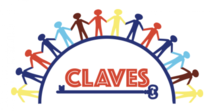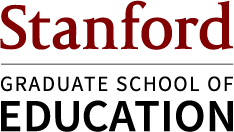Research
Learn more about our current and past research projects below.
Current Projects
CLAVES Project

CLAVES stands for Cultivating Linguistic Awareness for Voice and Equity in Schools. Drs. Rebecca Silverman (Stanford University), Patrick Proctor (Boston College), and Jeffrey Harring (University of Maryland) have worked together for over a decade to identify areas of language that are associated with literacy. In partnership with schools in Massachusetts and Maryland, these researchers developed an intervention approach for upper elementary school students that focuses on supporting linguistic awareness, vocabulary, and comprehension through text-based language instruction, discussion, and writing. The intervention includes supports for English Learners in particular. In 2020, this research team began a 5-year project to study the effects of the intervention in supporting student language, literacy, and writing development.
More information can be found at CLAVES and the Institute of Education Sciences.
Personalized Learning Environments (PLE) Partnership Project

The Personalized Learning Environments project is a partnership between San Francisco Unified School District (SFUSD) and Stanford University's Graduate School of Education that focuses on empowering teachers as designers and students as agents and owners of their learning. The K-5 PLE schools seeks to create models for technology-enabled, personalized learning environments that transform student learning across SFUSD with a focus on designing learning environments that will benefit all students. The research will help us document and share teaching practices that support students’ reading and writing development through the use of technology. Through this research, other teachers within SFUSD will learn more effective ways to develop their students’ literacy skills.
More information can be found on SFUSD’s website at https://www.sfusd.edu/learning/new-approaches-learning/digital-learning/ple
Ravenswood Reads

Ravenswood Reads, a service-learning based tutoring program, has partnered Stanford’s Haas Center for Public Service with the Graduate School of Education and the Ravenswood City School District (RCSD) since 1982. The program offers tutor training and facilitates reading tutoring at schools in the RCSD using an approach designed and studied (2006) by Connie Juel and Julie Wilson. Tutors meet youth in grades K-3 for one-on-one, individualized instruction. In response to pandemic protocols, the 2020- 2021 program operated as a solely online tutoring program. All training and tutoring took place online using Zoom as a communication tool and various online tools to present lessons to children. During the summer of 2022, we expanded the number of students that were tutored, and we tried a hybrid approach to tutoring where half of the students had remote tutors that they interacted with through Zoom and the other half were in person. In 2023, the tutoring was all in person and we piloted a program where high school students were trained as tutors. We have been engaging in research over the past few years to examine the impact that the various approaches to tutoring have had on students' literacy growth as well as the influence on the tutors.
More information can be found at Ravenswood Reads
Sesame Workshop Partnership Project
The Primary School and Sesame Workshop have partnered to share innovative curriculum with early childhood educators.
High quality early childhood education has lifelong benefits in areas such as educational attainment, income level, and quality of life (Allee-Herndon et al., 2019; Garcia, 2015; Reardon, 2013). However, the quality of early childhood education programs is highly variable and many programs that serve low-income families are under-resourced (Melnik et al., 2017). While a range of policy and practice changes are needed to address this problem, an open-source, research-based, high quality early childhood curriculum with accompanying professional development and family connections is one of the major building blocks needed to ensure all children have access to the high-quality early childhood education they deserve (Wechsler,et al., 2016).
In response to this need, the Sesame Workshop, in partnership with The Primary School and experts in early childhood education, has developed an early childhood curriculum called Social Emotional Literacy Foundations or S.E.L.F. for 3 and 4 year olds that integrates attention to language and literacy and social emotional learning with a whole child, culturally sustaining, trauma-informed, multimedia-infused approach. Developing language and literacy is critical for young children as these skills underlie academic success across the content areas (NELP, 2008). Social emotional development is perhaps even more important because children need to be able to develop healthy identities, manage emotions, empathize with others, and establish supportive relationships to thrive in school and beyond (CASEL, 2020).
During the 2021-22 school year Dr. Rebecca Silverman and her team from Stanford University's Graduate School of Education partnered with Sesame Workshop to study the implementation of the S.E.L.F curriculum in 2 preschool programs. Through surveys, observations, and interviews of the teachers, we found the program to be highly supportive of teachers and students. The Read-Alouds were well implemented and valued, the teachers widely used the social-emotional strategies from the curriculum, and the curriculum themes often were extended during Center time to expand student learning.
Rapid Online Assessment of Reading (ROAR)
The Rapid Online Assessment of Reading is an ongoing academic research project and online platform for assessing foundational reading skills. The ROAR is a suite of measures; each is delivered through the web browser and does not require a test administrator. The ROAR rapidly provides highly reliable indices of reading ability consistent with scores on other standardized reading assessments.
More information can be found on ROAR’s website at https://roar.stanford.edu/
Past Projects
BMAB and Bookelicious Research Partnership Project

BMAB (Bring Me a Book) and Bookelicious have partnered in a literacy project in research on reading motivation, recommending topics that children are excited about.
Martha's True Stories Buddies Program

The Martha's True Stories Buddies Program pairs younger and older elementary school students. As they read, watch and discuss interactive STEM-based stories and videos, students broaden their academic vocabulary, increase their understanding of informational and narrative text, and improve their communication skills. The program was developed for classrooms with diverse learners and includes support for English learners in particular. Find everything you need to create this cross-age learning program, including texts, videos, lesson plans, and student materials.
More information can be found at Martha's True Stories Buddies Program.
MARTHA SPEAKS Reading Buddies Program

MARTHA SPEAKS Reading Buddies is an innovative, cross-age reading program, based on the popular PBS KIDS show MARTHA SPEAKS. The program is designed to help kindergarten and upper-elementary students increase their vocabulary, develop self-esteem and social skills, and enhance their love of books and reading. Find everything you need to create a 10-session Reading Buddies program, including videos, teacher instructions, checklists, a Big Buddy guide, and games and activities.
More information can be found at MARTHA SPEAKS Reading Buddies Program.
